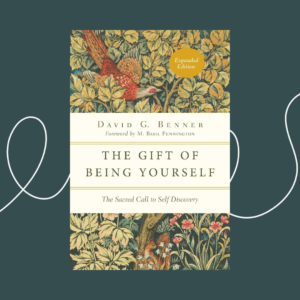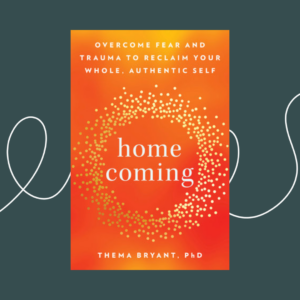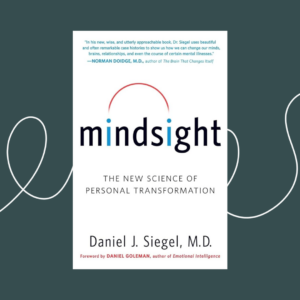“Relationships are the oxygen of thriving.” – Peter Benson
Grounding the Self in Theory
- We learn what it means or does not mean to thrive based on the people we are surrounded with. Our understanding of self is shaped within and through our growing understanding of our purpose, our morality and our place within our communities. Understanding the self is a lifelong journey. It is both a process of becoming and homecoming. The self isn’t some mystery to be magically discovered, rather it is formed with others, through our life experiences, and understood in the context of how we embody and live out the faith tradition we may choose to pursue. The Reciprocating Self argues that the self develops best when it is invested in relationships that are “characterized by unconditional love, commitment, gracing, empowering and intimacy.” To thrive is to be in relationships where the self is fully embraced and we can acknowledge the influence that we have on our external social structures. To be a “self” to be embedded into the web of community bringing with us our full personhood as the beloved.
- With this in mind, our suggestions on books to read about the self may not be exactly what you’d expect. We cannot just turn inward to understand who we are, although this is one important facet of self-understanding. These books invite you to consider your context and your community, your morality, your faith and your purpose. They are a compassionate invitation to reconsider how you see yourself through the lens of being the beloved.
- The Gift of Being Yourself: The Sacred Call to Self-Discovery
-
-
- “Personhood is not an accomplishment. It is a gift.” (Benner, 45)
- Dr. David G Benner (Ph.D Clinical Psychology, Depth Psychology and Psychoanalysis)
- Why read: Benner explores how in a Christian’s quest to know Jesus, there is often a loss of a false self that comes with it. Benner explores how being a disciple of Jesus requires that we come to know ourselves fully. In fact, he argues that knowing ourselves is an essential part of our faith journey. He explores how we have to shed the false selves that we have constructed to keep ourselves safe in order to find our true self as a follower of Jesus.
- Questions for reflection–
- As you consider the things that you know well in your life (this can be people, places, or things), how did you come to know them in this way?
- What would it look like to know yourself in this way?
- How might relationships with others help you experience and come to know yourself in new ways?
-
- Homecoming: Overcome Fear and Trauma to reclaim your whole, authentic self
-
-
- “Howard Thurman, a great African American theologian, once wrote, “Don’t ask what the world needs. Ask what makes you come alive, and go do it. Because what the world needs is people who have come alive.” –Dr. Thema Bryant-Davis
- In the aftermath of stress, disappointment, and trauma, people often fall into survival mode, even while a part of them longs for more. Juggling multiple demands and responsibilities keeps them busy, but not healed. As a survivor of sexual assault, racism, and evacuation from a civil war in Liberia, Dr. Thema Bryant knows intimately the work involved in healing. Having made the journey herself, in addition to guiding others as a clinical psychologist and ordained minister, Dr. Thema shows you how to reconnect with your authentic self and reclaim your time, your voice, your life. Her book explores the ways in which we internalize trauma and stress and invites the reader to consider ways in which they live into the fullness of their identity in spite of this.
- Questions–
- What qualities or characteristics come to mind when you think of your living as your authentic self? How is the person you are today different from the person you feel you authentically were created to be?
- What practices can you start today that will create more space for you to live from a place of authenticity? What is one way you can practice self-care this week? Consider writing this down and sharing it with a trusted friend who you feel comfortable inviting into this homecoming journey with you.
-
- Mindsight by Dr. Dan Siegal
-
-
- “Inviting our thoughts and feelings into awareness allows us to learn from them rather than be driven by them”
- Mindsight explores the connection between the mind and the body. It is a theory grounded in research that provides practical tools to become more aware of the relationship between the brain and the body. Mindsight is important to our understanding of self because it is what enables us to see the world through the eyes of others. It is what helps us to cultivate empathy with and for others which is an essential part of what allows us to thrive—we cannot be a reciprocating self if we are living disconnected from our brains and our bodies.
- Questions
- Reflect on some behaviors or patterns in your life that you are curious about learning more about. Using the mindfulness tools from Mindsight, consider writing them down reflecting on the purpose of these patterns in your life.
- Consider how these patterns are contributing to your ultimate purpose in life. Do you want to continue these patterns or would you like to stop? How would your relationships change if you acted more mindfully in them?
-
- A Round of Golf with My Father by William Damon
-
- “A coherent story can help us find meaning in events that otherwise may seem random or disconnected. It can weave our life events into a coherent narrative about who we’ve been and who we hope to become”
- Stanford Professor of Education, William Damon, introduces us to the concept known as a “life review.” The life review is the idea that by learning and reflecting on our past we are able to create and live into a more meaningful imagination of our present and ultimately live a life of more profound purpose. Not only is this book a fascinating read, it is a heartfelt, redemptive story of hope and purpose that arose out of abandonment and pain. This introduction to the life review is one that will capture your imagination and engage your curiosity as you start to reflect on your own past and how you came to be who you are today. It is hard to know ourselves independently from the people who have shaped us, and the life review is a wonderful tool to be able to reflect deeply on the people, places and experiences that have shaped your identity and sense of self today.
- Questions
- What gives you life today? What do you feel gives you a sense of purpose in your life currently? Why do you think this is? Do you share this sense of purpose with your loved ones, your friends, your colleagues or your community?
- Consider writing out some of the stories that have helped you understand how you came to be. If you don’t know these stories or don’t have access to them, consider getting curious about how you came to be where you are?
For further reading
Our stories matter. The ways in which we share and communicate our stories with others speak to our understanding of our own narrative identity. While theory and psychological research is important, it is only one facet of what contributes to an individual’s ability to thrive across the lifespan.
For fans of fiction—For those that may prefer fiction, these stories are for you. They are chosen to highlight an array of narratives and stories that speak to the complexities and joys of being human. They explore the role of culture, race, grief, love and purpose through the lens of personal stories and anecdotes. They are not for the faint of heart, but they will hopefully leave you with insight and inspiration as you explore how to tell your own story with grace, self-compassion and courage.
- In Love and Trouble by Alice Walker
- A collection of short stories that speak to the adversity of mothers, women, and children and the power of pursuing love and hope in spite of pain.
- In Love and Trouble
- Go Tell It on the Mountain by James Baldwin
- A coming of age story that speaks to the complex relationship between race and the church. It speaks to the moral, sexual, and spiritual dilemnas of a young boy in search of his identity and sense of self. Go Tell it on the Mountain
- The House on Mango Street by Sandra Cisernos
- A coming of age story that speaks to the power of sharing your story and owning where you came from
- The House on Mango Street
For the busy parent or caretaker—For those that find themselves with a house full of kids and time to spare this summer, these children’s poetry books are for you. Not only are they illuminated with engaging drawings and illustrations, but they speak to the human experience and the role that we play in it. They speak to the process of identity formation, family and community, and the exploration of the self. The language is filled with whimsy and is fitting for the whole family to read together.
- Remember by Joy Harjo
- Change Sings: A Children’s Anthem by Amanda Gorman
Continue Exploring

Blog
Who Am I? Owning Your Story
"Tell me about yourself," turns out to be a loaded question. Can we understand ourselves outside of our contexts and relationships?
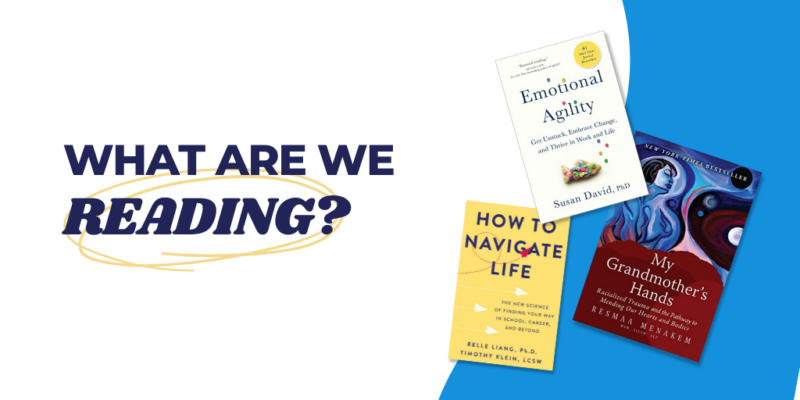
Blog
Spring 2023: What We’re Reading About Purpose
Atomic Habits: Tiny Changes, Remarkable Results by James Clear Why we like this book: James Clear offers concrete steps we all can take to change our habits for more purposeful living. If you have trouble making changes in your life and have goals you want to achieve, this book provides a framework for how to get results. The trick is to think in baby steps. My Grandmother’s Hands: Racialized Trauma and the Pathway to Mending Our Hearts and Bodies by Resmaa Menakem Why we like this book:…
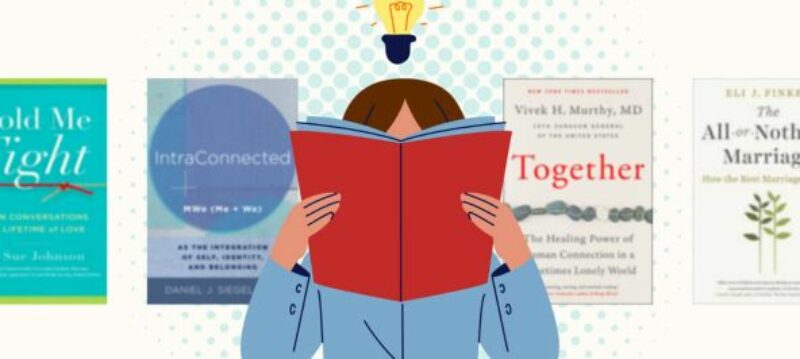
Blog
Summer 2023: What We’re Reading About Relationships
These books are inspiring us right now with their insights about improving the quality of our relationships.

